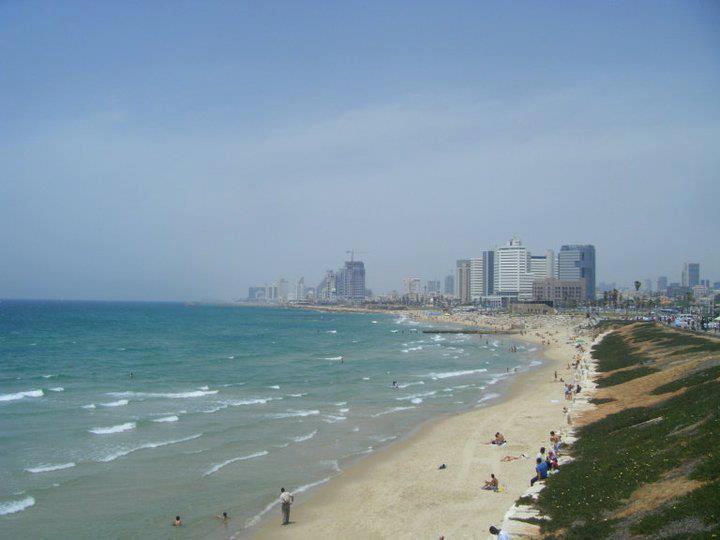 Over the past few years, I’ve taken a few international trips with my wife to South America and Europe, and this year to Israel, and in each location, we have preferred (partially for economical reasons) to rent an apartment, condo, studio, and even a private room in a hostel for the majority of our stay over (the often) expensive hotels. In doing hundreds of searches online, I have come across a few different types of sites/businesses that offer various types of vacation rentals:
Over the past few years, I’ve taken a few international trips with my wife to South America and Europe, and this year to Israel, and in each location, we have preferred (partially for economical reasons) to rent an apartment, condo, studio, and even a private room in a hostel for the majority of our stay over (the often) expensive hotels. In doing hundreds of searches online, I have come across a few different types of sites/businesses that offer various types of vacation rentals:
- These are titles I have concocted for the purpose of the article.
- Vacation Rental Sites: Large sites that serve as a local or regional hub for all available vacation rentals in the area. These sites are full fledged businesses and take a portion of the rental cost from the owner of property, but also help with the management and marketing of the property as well. If you are not satisfied with your rental, these sites may be able assist you if you have a dispute with the property owner. Majority of these sites have up to date calendars of when their rentals are reserved and available, however, it is best to inquire as they are not always up to date. Most importantly, all of these sites (should) take some form of credit card payments, either on their own, or via Paypal, Google Checkout, etc. The one downfall is that these sites tend to be slightly more expensive since you’re going through a middle-man. I used a site like this to rent rooms in 2 different hostels in Scandinavia back in 2008, and our experience was pleasant.
- Real Estate “Mogul”: An individual, family, or small business that owns multiple properties in a given region, renting out their properties directly to travelers, typically via their own website. If their business is run well, they will offer a way to make a deposit via credit card, and send you a confirmation of your reservation, with frequent communication via email or phone. These sites will often have calendars of availability, but are not up to date a good percentage of the time. Additionally, their websites should (if they are reputable) have robust details and instructions on how to reserve an apt, release forms, and rental agreements.
In 2009, I reserved a studio apt rental for a week in Buenos Aires through DiscoverBA.com and had a very pleasant experience. This family run business owns a slew of modern apts in different sizes around the city, with cable TV, wireless internet, and AC. When we arrived, we were greeted at the apt by one of the owners who showed us via a city map what to see and do in the area. They were very friendly and easy to work with. I recently recommended them to a coworker who just got back from Buenos Aires, and he had a great experience with them as well. - Property Owner / Sole Proprietor: An individual who owns and most likely self manages his/her apt or apts within one building, or nearby buildings. This individual knows the ins and outs of their property, what tricks to use to get that pesky door open, which nearby supermarket is the best deal, and how to find free parking nearby. However, what expertise this person has in their property, the may lack in technological savvy-ness. Often, their websites are very basic, and may not have been updated in a few years. Additionally, many of these “sole-proprietors” are unfamiliar with sites like PayPal, or with the notion of accepting credit cards, as they understandably eat into their profits.
I have dealt with this in 2 situations, once in Denmark in 2008, and currently in reserving a rental in Israel. In Denmark, after our arrival we were informed that the rest of our payment was to made in cash, which we were not notified of in advance. Our very friendly hosts were an older couple (with multiple bedrooms for rent) and I physically signed them up for PayPal so I could pay them immediately, and in their currency.In my current process of making a reservation with a sole-proprietor in Israel, the owner asked me to physically mail a check as my deposit. This is not something I do, or recommend, as you – the traveler – have no recourse to recoup your funds should they cash your check and never rent you that apt – and the check could take weeks to arrive. Since the owner was not willing to sign up for PayPal, we set on a compromise, one that would protect me as the traveler, and ensure that they were paid – write a postdated check for the day (or day after) you are set to arrive. - The “Travel Agent”: I don’t mean the travel agents that book your flights, but rather a travel planner – someone you pay to plan your itinerary for you. They typically book all of your rooms for you, and plan your day to day trip. Make sure you have a written and signed agreement with this individual before reservations are made and paid for.
Understanding all of the above, I have a few general tips when looking to reserve a vacation rental overseas (although this can apply to domestic rentals as well):
- Do your research. Search multiple sites, get many price quotes, search in multiple neighborhoods, etc.
- Get a lookout. If you have friends or family that live near the vacation rental area, have them scope the place out for you. This is obviously something you can’t always do, so rely on the next tip… [H/T to @LoneTreeBeer for this suggestion]
- Read online reviews. Not every rental business has reviews from a trusted 3rd party source, but for the ones that do, even better.
- Look for property details. Websites that describe all the amenities in the room, in the building, and vicinity are helpful and can clear up any misconceptions that their pictures may give. The more information they provide about the property, the better a decision you can make as a traveler.
- Place a secure reservation & deposit. It is standard for owners or property managers to request a reservation/security deposit anywhere from 10% – 50% of the total rental rate when making the reservation. Specific info relating to the reservation, security deposit, property maintenance, and additional or optional fees such as damages or telephone charges, should be outlined in a detailed written agreement.
According to HomeAway.com: Credit Cards and PayPal (funded with a CC) are preferred payment methods. Each owner’s payment methods vary, so inquire beforehand. Do not send money via Western Union, cashier’s check or other wire services from property owners who demand immediate and/or full payment through these methods. If they require this type of payment, this should raise a red flag for you.
- Review and sign a detailed rental document and owner agreement. This serves as your contract and reservation placeholder.
- Keep track of everything. Keep a physical or digital folder of all our documents, receipts, invoices, and payments for easy reference.
- Make sure the owners lock up anything valuable. Anything that they would sue you over if it broke. Make sure to take pictures of any damage you see when upon arrival. [H/T to @Reach_3K for this suggestion.]
- Understand how the owner wants to be paid the remainder. Each owner differs in how they want the remainder of the balance of your rental paid. In my experience, most want cash. Make sure you have enough with you to exchange into the local currency, or have access to an ATM nearby to pay the owners.
TIPS:
—
Article written by Dani Klein, founder of YeahThatsKosher.com.
If you found this article helpful, please click “LIKE” above, and consider sharing this article on Twitter, and with your friends and family. Safe travels everyone! ~Dani



















































